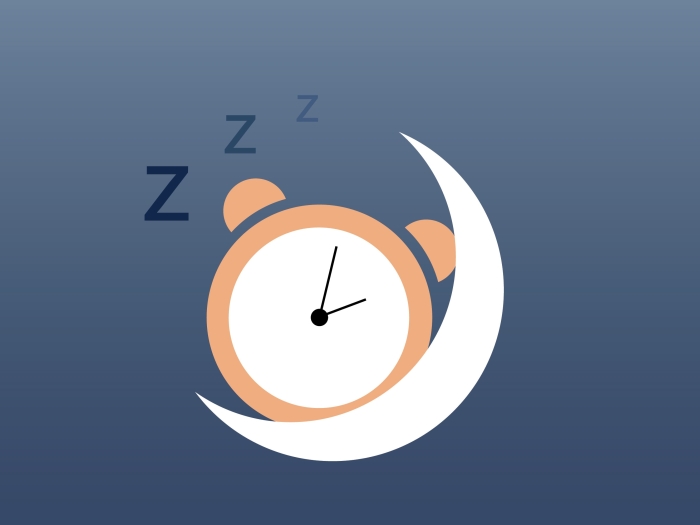What sleep experts say will help you get re-acclimated to a pre-pandemic schedule
11:40 AM
Author |

For most people, working from home was expected to be a short-term solution to avoid the spread of COVID-19.
A year and a half later, this short-term solution that meant adjusting to a new work schedule, new work habits and an all-around new lifestyle has become the new normal.
But as employees are slowly being called back to the workplace, many are experiencing emotions ranging from stress and anxiety to relief and anticipation, according to clinical psychologist Leslie Swanson, Ph.D., who sees patients at the University of Michigan Health Sleep Disorders Centers.
However you view this return to normal, one thing is clear: Getting back to old routines will take some work – and a healthy sleep routine is one of the most critical steps of all, said Cathy Goldstein, M.D., M.S., a neurologist also at the Sleep Disorders Centers.
"During the last 18 months, people have been living according to their circadian timing, some going to bed later and sleeping longer, with less variability in their sleep patterns," said Goldstein.
Swanson agrees.
"Some individuals say they've been sleeping much better and are more productive because of the flexibility in their schedules. For example, night owls who found it difficult to work a 9-to-5 job have embraced the flexibility brought on by the pandemic. They've been able to sleep according to their body's circadian timing."
By slowly shifting your sleep schedule, you can eliminate much of the anxiety you might be feeling about getting up early.Cathy Anne Goldstein, MD
Like Podcasts? Add the Michigan Medicine News Break on iTunes or anywhere you listen to podcasts.
But all this will change as many of us transition back to the traditional workday. And one of the best things we can do is re-commit to good sleep hygiene, Swanson said.
6 expert tips for getting back to a healthy sleep schedule
-
Make your sleep and wake times consistent
"People sleep best with a consistent bedtime and wakeup time," Goldstein said. "It's important not to deviate from your sleep schedule." Most important is getting up at the same time each day, even on weekends. "A consistent wakeup time helps strengthen your circadian alignment."
"Sleeping in on weekends can lead to social jet lag on Mondays, which can often last all the way through Wednesday," Swanson added.
-
Slowly shift your bedtime
Many people are concerned about falling asleep early enough to accommodate their new wake time, Goldstein said. To combat this, she advises going to bed earlier — in 20- or 30-minute increments — starting a week or two before going back to the workplace.
"By slowly shifting your sleep schedule, you can eliminate much of the anxiety you might be feeling about getting up early. It's hard to shift sleep patterns abruptly."
-
Learn to relax
If you're anxious about returning to the workplace, practice relaxation exercises in the evening to help you sleep, Swanson said.
"Take time for a buffer zone 30 to 60 minutes before bed to engage in a quiet activity. It's difficult to go from 60 to 0 miles per hour at night and expect to get a good night's sleep."
-
Dim the lights
Dimming the lights before bed helps with the production of melatonin, a hormone in the body that plays a role in healthy sleep. Goldstein recommends avoiding blue light beginning four hours prior to bedtime. This includes light from smartphones, tablets, computer monitors and gaming systems.
Watching TV before bed is ok, but in moderation. While streaming services like Netflix gained popularity during the pandemic, Goldstein recommends watching TV for a set period of time to squash binge watching behavior: "Set boundaries and when your TV time is up, get up and get ready for bed."
MORE FROM MICHIGAN: Sign up for our weekly newsletter
-
Let morning light in
Bright morning light helps set the clock for the day by shutting down your body's production of melatonin. "We can be awake, but our circadian clock isn't set for the day until we experience bright light," said Swanson.
"Natural light is the best, but if that's not possible, indoor lighting will provide positive effects," added Goldstein.
-
Make sleep a priority
Above all, as you transition back to in-person work, make sleep a priority.
"Often, sleep gets put on the back burner due to other obligations, but it's critical to get quality sleep," said Swanson, noting that poor sleep habits can cause irritability, poor concentration and problems communicating with fellow workers.
Goldstein recommends setting a bedtime alarm, similar to a morning alarm to help you prioritize sleep.
"Set the alarm an hour before bed to help you remember it's time to wind down. Put other things on the back burner, but never your sleep."

Explore a variety of health care news & stories by visiting the Health Lab home page for more articles.

Department of Communication at Michigan Medicine
Want top health & research news weekly? Sign up for Health Lab’s newsletters today!





